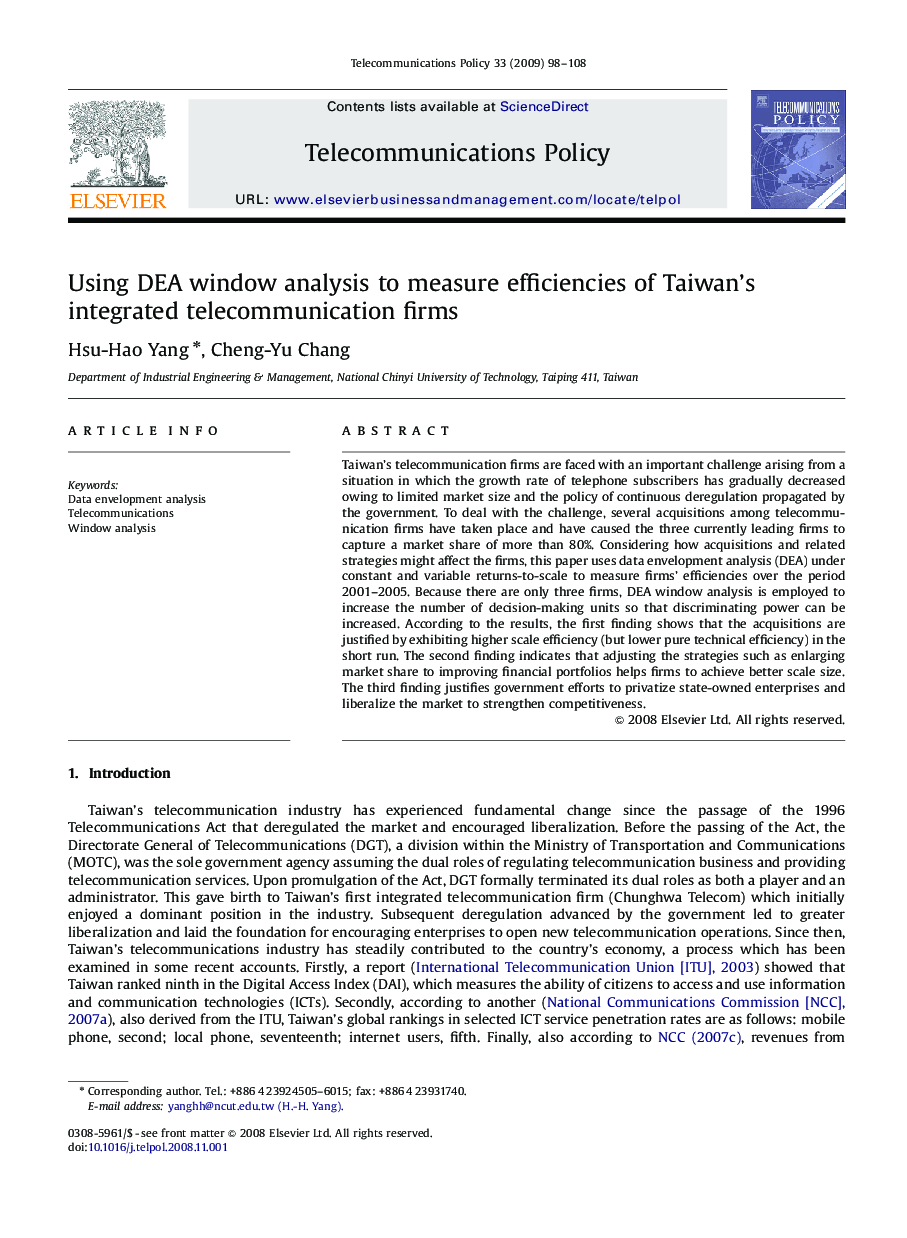| Article ID | Journal | Published Year | Pages | File Type |
|---|---|---|---|---|
| 557082 | Telecommunications Policy | 2009 | 11 Pages |
Taiwan's telecommunication firms are faced with an important challenge arising from a situation in which the growth rate of telephone subscribers has gradually decreased owing to limited market size and the policy of continuous deregulation propagated by the government. To deal with the challenge, several acquisitions among telecommunication firms have taken place and have caused the three currently leading firms to capture a market share of more than 80%. Considering how acquisitions and related strategies might affect the firms, this paper uses data envelopment analysis (DEA) under constant and variable returns-to-scale to measure firms’ efficiencies over the period 2001–2005. Because there are only three firms, DEA window analysis is employed to increase the number of decision-making units so that discriminating power can be increased. According to the results, the first finding shows that the acquisitions are justified by exhibiting higher scale efficiency (but lower pure technical efficiency) in the short run. The second finding indicates that adjusting the strategies such as enlarging market share to improving financial portfolios helps firms to achieve better scale size. The third finding justifies government efforts to privatize state-owned enterprises and liberalize the market to strengthen competitiveness.
